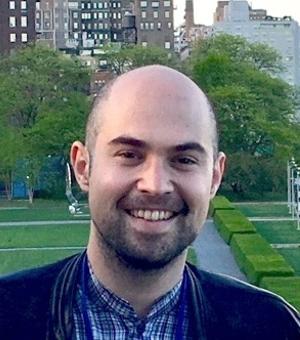Dr Orçun Can Okan
I am a historian of the late Ottoman Empire and the modern Middle East, with a research focus on the ends of empire, regime change, and state succession in the late nineteenth and early twentieth centuries. I received my PhD in History from Columbia University in 2020. I then held a postdoctoral fellowship in Global History and Governance at the Scuola Superiore Meridionale (SSM) in Naples, Italy (2020–23), and worked as a Research Associate on the ERC-funded Moving Stories project at the University of Oxford (2023–25). Before doctoral studies and postdoctoral research, I studied primarily Ottoman history in Istanbul and undertook Arabic language training in Beirut and Cairo. I hold MA degrees in History (Columbia, 2015; Boğaziçi, 2013) and BA degrees in History and Turkish Language and Literature (Boğaziçi, 2010; Boğaziçi, 2010).
Research Interests
A central aim in my research is to examine specific problems of governance as navigated by diverse social actors subject to states' military, administrative, and legal authority. I draw on a rich array of archival sources to trace the stakes and consequences of these problems as experienced by historical actors with differing views, interests, and voices. These concerns have been central to my first monograph, titled Needs That Bind (Stanford University Press, April 2026), which examines the dismantling of the Ottoman Empire and the construction of new political regimes in Turkey, Syria-Lebanon, and Iraq after World War I. The book explores subjecthood, nationality, and citizenship through claims to retirement pensions, alimony cases between former spouses who became nationals of different states, and disputes over land, property, and assets held in pious endowments. The monograph's core concerns are complemented in my research articles, which engage a wider range of themes and sources, including guidebooks, various forms of life writing, press publications produced at key moments of political transition, as well as state correspondence, legal instruments, and petitions.
I am currently developing two main research projects. The first builds on the themes of Needs That Bind by tracing the role of nationality in the reconstruction of the medical profession in post-Ottoman regimes after World War I, focusing primarily on pharmacists and doctors, with attention to nurses and midwives as well. I am particularly interested in how former Ottomans and those classified as "foreigners" (as variously defined) navigated new accreditation requirements and employment restrictions across emerging regimes in post-Ottoman Turkey and the Arab Middle East. Following this project, I hope to pursue a study of specific sites in former Ottoman territories that are widely regarded today as sacred—and in some cases also designated as "world heritage." Conceived as a multiyear collaborative research agenda, this project will trace the construction, competition, and "coexistence" of sacred sites across different political regimes in lands that gradually became former Ottoman domains.
Featured Publication
Teaching
I would be interested in supervising topics in global and imperial history (with a focus on the late nineteenth and early twentieth centuries), in late Ottoman history, and topics pertaining to regime change and state succession in former Ottoman domains in the Middle East, North Africa, and Southeastern Europe before World War II.
I currently teach:
| Prelims | FHS |
| Further Subject 22: The Middle East in the Age of Empire, 1830-1971 |
Graduate Papers:
PG Option Paper: State, Constitution, and Revolution in Turkey, Egypt, and Iran (previously titled Paths to Modernity)
Optional Subject 14: When Neighbours became Strangers: Violence, Community, and Identity in Late Ottoman Syria





